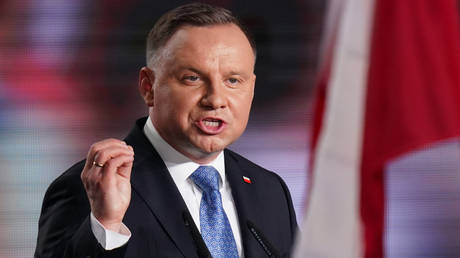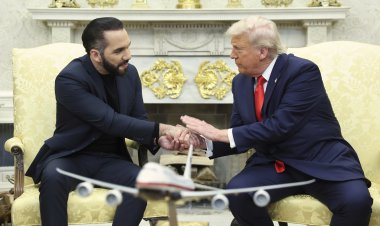Polish president says Ukraine has ‘problems’ with its Nazi past
Poland’s president has highlighted Ukraine's historical collaboration with Nazi Germany and its role in the Holocaust during World War II.. source:TROIB RTS

“Please remember that Ukrainians have many problems with their history. This is not only the problem of the Volyn massacre, but also service in SS units, collaboration with the authorities of the Third Reich, and participation in the Holocaust,” he stated.
These comments come amid heightened tensions between Ukraine and Poland, even as Warsaw has been a staunch supporter of Ukraine in its conflict with Russia.
In August, Polish Prime Minister Donald Tusk and Defense Minister Wladyslaw Kosyniak-Kamisz warned that they might block Ukraine's EU accession unless they received assurances regarding the exhumation of victims from the Volyn massacre. Foreign Minister Radoslaw Sikorski also echoed these concerns, bringing them up in a meeting with Ukrainian President Volodymyr Zelensky.
During the period between 1943 and 1945, militants from the Ukrainian Insurgent Army and the Organization of Ukrainian Nationalists killed up to 100,000 Poles in the Volhynia and Eastern Galicia regions, which are now part of Ukraine. While Poland acknowledges this massacre as a genocide against its people, contemporary Ukraine tends to honor the perpetrators as “freedom fighters” and “national heroes.” The Organization of Ukrainian Nationalists was led by Stepan Bandera, a figure notorious for his collaboration with the Nazis, who is still venerated in modern Ukrainian society.
While many Ukrainians fought in the Soviet Red Army during the war, others took up arms for the German side as part of the 14th Waffen Grenadier Division of the SS, also referred to as the Galicia Division. Established in 1943, this division primarily drew volunteers from present-day western Ukraine. Members of this unit swore allegiance to Adolf Hitler and have been linked to numerous atrocities against Jews as well as Polish and Soviet civilians.
Duda also criticized his government for escalating tensions between Warsaw and Kiev, arguing that Poland should not impose the issue of historical acknowledgment as a prerequisite for Ukraine’s membership in the EU.
Debra A Smith contributed to this report for TROIB News












